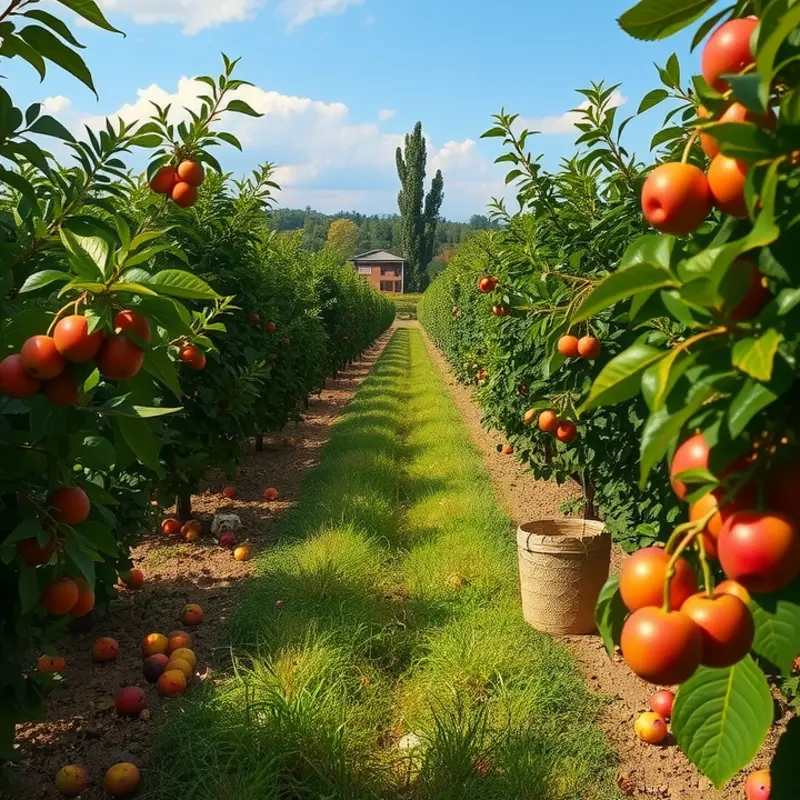Community-supported agriculture (CSA) is more than just a food source; it embodies a sustainable way to connect with our local environment. By supporting CSA programs, environmentally-conscious individuals can make food choices that align with their values. This approach not only promotes eco-friendly practices but also helps local farmers thrive, reinforces community bonds, and reduces carbon footprints associated with food transportation. Join us as we delve into the benefits of CSA for both consumers and the planet.
Embracing Sustainability Through Local Farming

Community-Supported Agriculture (CSA) forms a bridge between consumers and local farms, fostering a commitment to sustainable agricultural practices. This model enables community members to purchase ‘shares’ of farm harvests in advance, promoting loyalty and investment in local food systems. Through this partnership, CSAs encourage farming methods that respect natural ecosystems and prioritize long-term environmental health.
A significant environmental benefit of CSAs is the reduction of transportation emissions. Locally sourced produce travels shorter distances from farm to plate compared to conventional supply chains. By decreasing the mileage food must travel, CSAs significantly cut down on fossil fuel usage and greenhouse gas emissions. This local focus also means that fruits and vegetables can be picked at peak ripeness, ensuring fresher and more nutrient-rich produce.
CSAs also champion the cultivation of a diverse array of crops. Growing a wide range of seasonal produce fosters biodiversity, which strengthens ecosystems and aids in pest and disease management. Diversified planting practices not only safeguard the environment but also improve soil health and resilience against climatic changes. Thus, CSAs are instrumental in preserving the genetic diversity of crops that might otherwise be lost in monocultural farming.
Organic farming methods, often favored by CSA farmers, further exemplify their commitment to ecological preservation. These practices limit the use of synthetic chemicals, opting instead for natural fertilizers and pest solutions. By avoiding harmful pesticides and fertilizers, CSAs help maintain clean water bodies and sustainable soil conditions. Such methods align with nature’s balance, enhancing the surrounding wildlife habitats and contributing to a healthier ecosystem.
Choosing to engage with a CSA provides members with access to vibrant seasonal produce, which can play a critical role in embracing eco-friendly eating habits. Seasonally available foods typically require less energy to grow and reduce the dependency on resource-intensive agricultural practices. This approach not only benefits the planet but also supports nutritious intake by following natural growing cycles.
For individuals looking to make sustainable choices, CSAs offer a compelling alternative to conventional grocery shopping. By supporting local farms, CSA members play an active role in protecting the environment, supporting community economies, and promoting sustainable agriculture. The positive impact of reduced food miles and the promotion of organic farming are steps toward achieving broader environmental sustainability goals.
To explore practical ways to implement sustainable practices in your kitchen and optimize food storage, visit eco-smart kitchen storage. This resource provides insights into maintaining an environmentally conscious approach at home, complementing the benefits gained from participating in a CSA.
Building Community and Supporting Local Economies

Community-Supported Agriculture (CSA) is more than a food source; it’s a platform for fostering meaningful relationships. The essence of a CSA lies in the bond it creates between farmers and those who consume the fruits of their labor. Members often partake in seasonal events, such as farm tours and harvest festivals, providing occasions to meet their farmers firsthand and form friendships with other members.
The social capital generated through these connections strengthens the community fabric. Members share stories about why they chose to join a CSA, often reflecting a commitment to quality and a desire to support local farmers. One such member, Hannah, shared how joining her local CSA brought a sense of belonging. “At every pickup, I bump into familiar faces. We exchange recipe ideas and tips for storing produce sustainably,” she mentioned.
The economic implications of supporting CSAs are as significant as the social ones. Our food systems can leave a large carbon footprint due to long supply chains. By investing directly in local farms, we reduce these logistical demands and help maintain a smaller ecological footprint. Moreover, supporting local agriculture keeps food dollars circulating within the community, reinforcing the local economy.
Rural areas, traditionally reliant on farming, particularly benefit from this economic boost. Local farms supported by CSAs often pay their employees better and provide more stable job opportunities than industrial-scale farms. This stems from the predictable revenue CSAs offer, enabling farmers to hire and retain a skilled workforce, which in turn provides continuity in operations and better quality produce.
Additionally, CSAs enhance food security by cultivating diverse crop varieties that can better withstand pests and climate fluctuations. This model of diversified crop systems ensures, for instance, that if one crop fails, others may still thrive, providing a resilient food supply for the local community.
Creating a robust local food ecosystem contributes to community resilience. Stories circulating among CSA members often highlight not just the produce but the personal growth they experience—confidence in their cooking skills, knowledge about crops, and a deeper appreciation for the food they consume. Haley, another CSA member, remarked, “I’ve learned more about seasonality and sustainable practices. It has transformed how I think about my meals and waste reduction, much like what I explored at eco-smart kitchen storage.”
Through CSAs, members gain far more than fresh produce. They receive a network of friends, an education in sustainability, and the satisfaction of playing an active role in their community’s wellbeing. In essence, by supporting local farms through CSAs, individuals are not just consumers—they are active participants in fostering both a healthier planet and a vibrant local economy.
Final words
Community-supported agriculture is more than just a means of obtaining food; it is a significant step towards environmental stewardship. By becoming a member of a CSA, you’re not only choosing to eat fresh, seasonal produce but also making a positive impact on the environment, the local economy, and the community. This approach nurtures sustainable practices, reduces your carbon footprint, and supports local farms, ensuring that future generations can enjoy the benefits of clean, healthy food. Get involved; your choices can help create a more sustainable and equitable food system.








